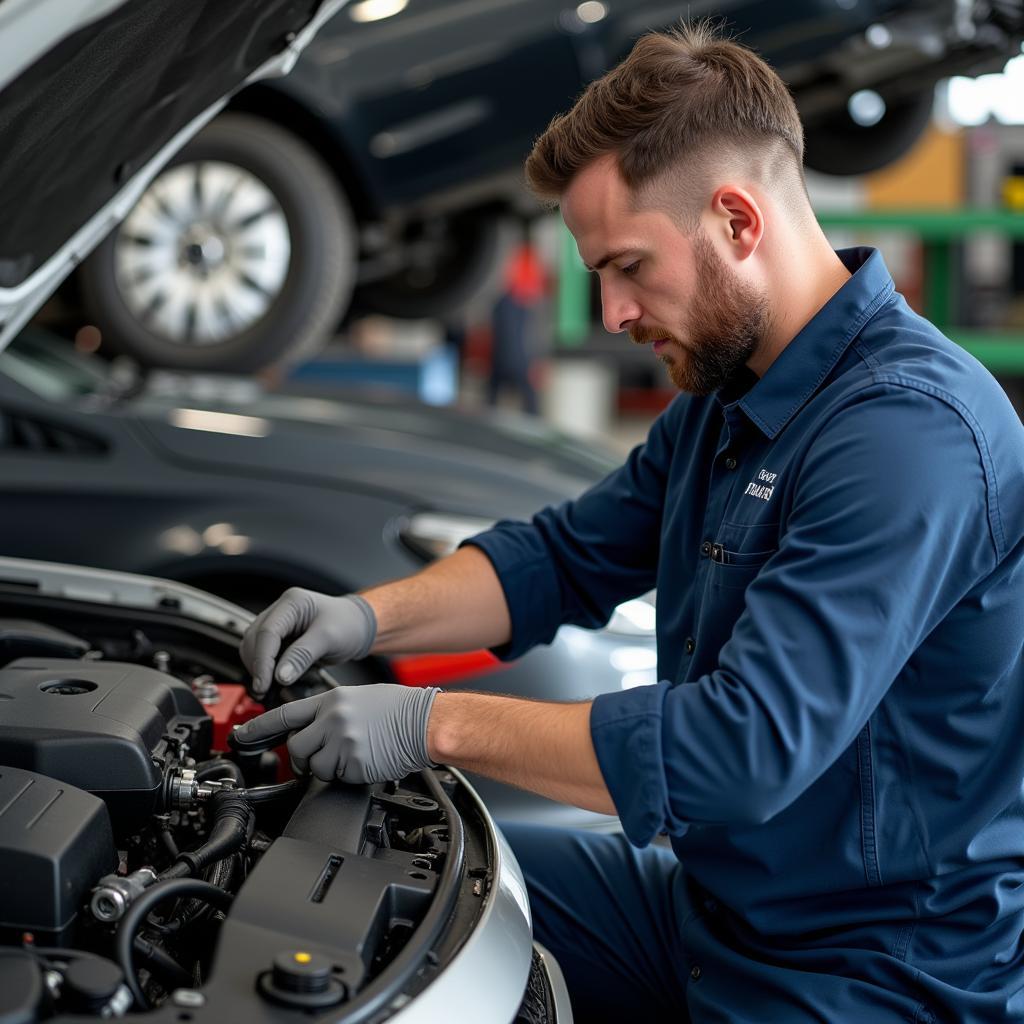A full car service can feel like a significant expense, leaving many drivers wondering, is a full car service necessary? Understanding what’s included and how it benefits your vehicle’s health and longevity is key to making informed decisions about your car maintenance. This article will delve into the intricacies of full car services, helping you determine when they’re essential and when a more basic service might suffice.
What Does a Full Car Service Entail?
A full car service goes beyond a basic oil change and tire rotation. It’s a comprehensive check-up designed to identify and address potential issues before they become major problems. A full service typically includes inspections of vital components like brakes, steering, suspension, exhaust, and lights. It also involves replacing essential fluids, filters, and spark plugs as needed. Think of it as a thorough physical exam for your car.
Knowing how to service a petrol car yourself can be beneficial for minor checks, but a full service requires specialized tools and expertise.
Why Is a Full Car Service Important?
Regular full car services are crucial for maintaining the health, safety, and performance of your vehicle. They can prevent costly repairs down the line by catching issues early. A well-maintained car is also safer, more reliable, and more fuel-efficient.
Benefits of a Full Car Service
- Enhanced Safety: Thorough inspections of brakes, steering, and suspension ensure your car is safe to drive.
- Improved Performance: Replacing fluids and filters helps your engine run smoothly and efficiently.
- Increased Resale Value: A comprehensive service history can significantly boost your car’s resale value.
- Extended Lifespan: Regular maintenance can prolong the life of your vehicle.
- Peace of Mind: Knowing your car is in top condition gives you peace of mind on the road.
If you’re wondering where can i get my lease car serviced, remember most dealerships and reputable independent garages offer full car service options.
When Is a Full Car Service Necessary?
The frequency of full car services depends on several factors, including your car’s make and model, age, mileage, and driving conditions. Most manufacturers recommend a full service every 12,000 miles or annually, whichever comes first. However, if you drive in harsh conditions or put a lot of miles on your car, you may need more frequent servicing.
Determining Your Car’s Service Needs
- Consult Your Owner’s Manual: Your owner’s manual provides specific service recommendations for your vehicle.
- Consider Your Driving Habits: If you frequently drive in stop-and-go traffic or on rough roads, you may need more frequent servicing.
- Pay Attention to Warning Signs: Unusual noises, vibrations, or warning lights can indicate a need for service.
“Regular maintenance is an investment, not an expense,” says John Davis, a certified automotive technician with over 20 years of experience. “It’s much cheaper to prevent problems than to fix them after they occur.”
Is a Full Car Service Always Required?
While full car services are essential for long-term vehicle health, they may not always be necessary. Sometimes, a more basic interim service, which focuses on oil changes and essential checks, can suffice between full services.
Learning about how can ashford university career services benefit me may not seem directly related to car maintenance, but it highlights the importance of professional development in any field, including automotive services.
Conclusion
Is a full car service necessary? Absolutely, for maintaining your car’s longevity, safety, and performance. While it might seem like a significant upfront cost, regular full car services can prevent expensive repairs in the long run and ensure your vehicle remains reliable for years to come. Consult your owner’s manual and a trusted mechanic to determine the optimal service schedule for your specific needs and driving conditions.
FAQ
- What is the difference between a full service and an interim service?
- How often should I get my car serviced?
- What are the signs my car needs a service?
- How much does a full car service cost?
- Can I perform a full car service myself?
- What should I look for in a car service provider?
- Why is preventative maintenance important?
Common Car Service Scenarios
- Squeaking Brakes: Indicates worn brake pads and the need for a brake inspection.
- Rough Idling: Can be a sign of spark plug issues or other engine problems.
- Pulling to One Side: May indicate alignment problems or issues with the steering system.
Further Reading
Explore other helpful articles on our website such as “who can receive long-term care services” and “how to get certified health care environmental services technician“.
Need assistance? Contact us via WhatsApp: +1(641)206-8880, Email: [email protected]. Our customer service team is available 24/7.



